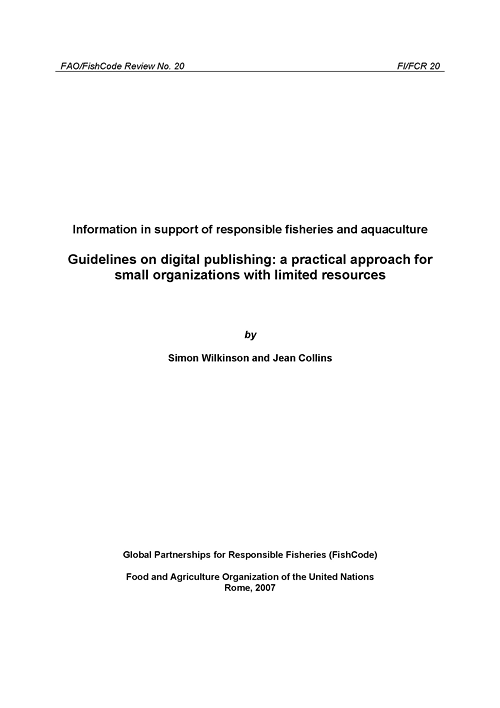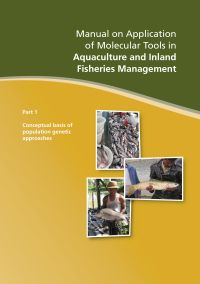Guidelines on digital publishing: A practical approach for small organisations with limited resources
11 June 2007 | Guidelines on digital publishing: A practical approach for small organisations with limited resources | 2301 Downloads | .pdf | 2.52 MB | Education and Training
The importance of research in fisheries and aquaculture is referred to throughout the Code of Conduct for Responsible Fisheries, as is the need to disseminate and share the results of research.
Stakeholders in developing countries generally are still waiting for reliable, high speed and cost-effective internet access that is widely available in the industrialised world. Once connected, users must grapple with, and make decisions about, myriad technological solutions that exist.
These guidelines on digital publishing are targeted primarily at small organizations with limited resources in developing countries, in order to facilitate decision-making on how to publish and disseminate their information, with emphasis on the internet. The Guidelines are based on the years of experience of the Network of Aquaculture Centres in Asia-Pacific (NACA) and its partners. The approach is practical in orientation, covering topics including:
- Planning, building and maintaining a sustainable digital publishing system, focusing on a common scenario of setting up a web site as a digital publishing platform.
- Producing user-friendly digital publications and making them accessible.
- Some recent international developments in digital publishing; and (d) recommended software tools and technical resources for further reading.
Copyright, all rights reserved.

